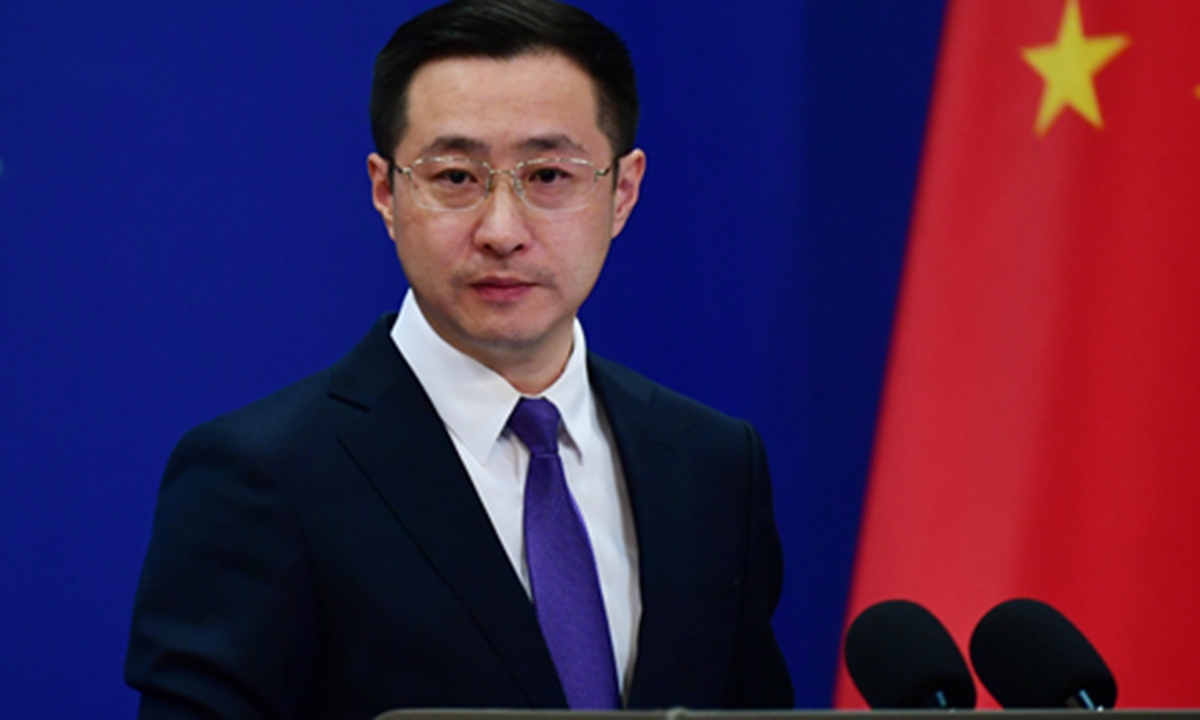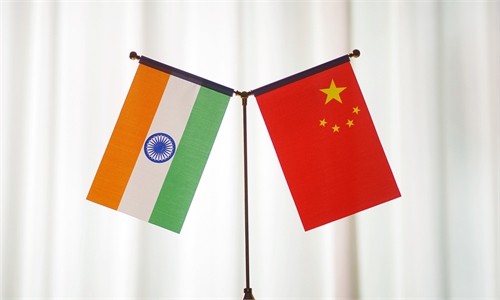Frontier troops of China, India implement resolutions over border area issues in an orderly way: Chinese FM
Both countries need to collaborate to restore bilateral ties: analyst

Chinese Foreign Ministry spokesperson Lin Jian Photo: Chinese Foreign Ministry
China and India recently reached resolutions on relevant issues concerning the border. At the moment, the Chinese and Indian frontier troops are implementing the resolutions in an orderly way, Chinese Foreign Ministry spokesperson Lin Jian said at a press conference on Wednesday in response to a question regarding the process of disengagement in the India-China border.
While analysts highlighted that the disengagement marks an end to the standoff, they emphasized that both countries need to collaborate to restore bilateral ties and India needs to shift focus from geopolitical rivalry and embrace the chance of meaningful cooperation.
India Today reported on Wednesday that Indian and Chinese military commanders are scheduled to meet at the Line of Actual Control (LAC) to confirm the removal of temporary structures and vehicles.
Indian Express said on Wednesday that India and China have completed the process of disengagement in two border areas. Citing sources, it said patrolling will commence soon, adding that talks would continue at the local commanders' level and there will be an exchange of sweets on Thursday.
"Disengagement is the first step on implementing the resolution, meaning Chinese and Indian troops will no longer confront each other directly at the border. This does not restore the situation to what it was before April 2020 but rather establishes a buffer zone between the two forces to reduce tensions," Liu Zongyi, director of the Center for South Asia Studies at the Shanghai Institutes for International Studies, told the Global Times on Wednesday.
The next step may involve further consultations on implementing patrols, but the actual implementation may have to wait until spring next year when weather condition is suitable, Liu said.
According to a report from New Delhi Television on Tuesday, China and India "will each continue to have surveillance options" and will inform the other prior to stepping out on patrol "to avoid any miscommunication."
Liu said that the disengagement at the two areas will lay the groundwork for negotiations on similar arrangements and portals along the western section of the China-India border and other areas.
The resolution reached by China and India has garnered widespread attention. US State Department spokesperson Matthew Miller said at a press conference on Tuesday that "we're closely following the developments… We welcome any reduction in tensions along the border." He also noted that the US has spoken with its Indian partners and been briefed on the matter but did not play any role in the resolution.
"US has long viewed India as a key tool and frontline force to contain China. With fewer border disputes between China and India, the US loses a major lever to fuel discord between the two nations. However, the gradual resolution of the border issue is clearly in the best interest of both China and India," Liu said.
Liu said that China remains committed to viewing India as a development partner and hopes both nations can advance together and share the opportunity for development.
Achieving these goals requires joint efforts, and China cannot do it alone. Both countries need to collaborate to restore bilateral ties. India should move beyond an outdated Cold War thinking and avoid viewing US-China competition as a strategic opportunity. Instead, it needs to shift focus from geopolitical rivalry and power balancing, minimize unnecessary conflicts, and embrace the chance for meaningful cooperation, Liu said.




